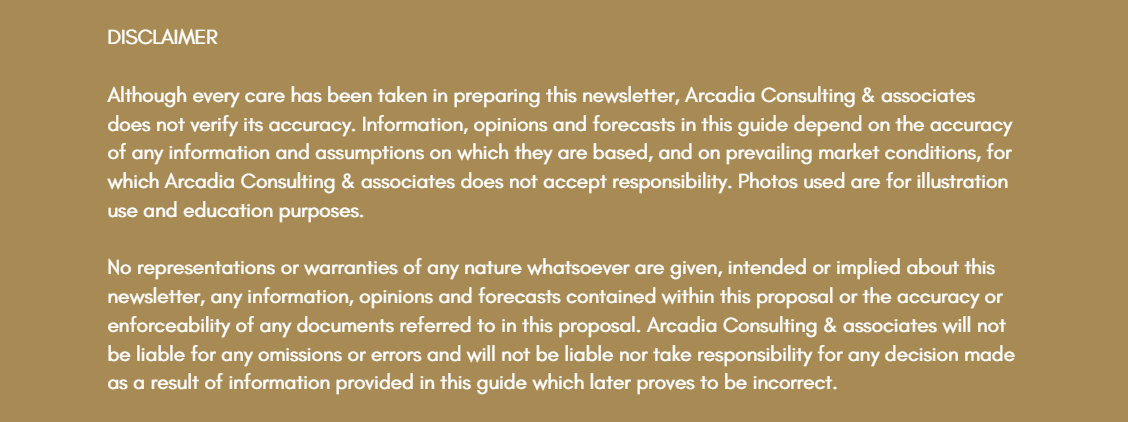|
Property search |
The first step is to search for a property that meets your requirements and budget. You can use online property portals or engage a property agent to help you with your search. |
|
Property viewing |
Once you have shortlisted a few properties, you can arrange for property viewings to get a better idea of the property's condition and suitability. |
|
Offer and negotiation |
If you’ve found the property that you like, you can make an offer (LOI) to the landlord. Note that the LOI is not the legally binding document; that would be the Tenancy Agreement (TA). The landlord may accept your offer or negotiate the terms of the tenancy agreement. |
|
Tenancy agreement |
Once the terms have been agreed upon, a tenancy agreement will be drafted and signed by both parties. The tenancy agreement outlines the terms and conditions of the tenancy, such as the rental amount, payment terms, and duration of the tenancy. |
|
Security deposit and stamp duty |
Before moving in, you will need to pay a security deposit, which is usually equivalent to one or two months' rent. You will also need to pay stamp duty, which is a tax on the tenancy agreement. |
|
Move-in inspection |
Before moving in, you should conduct a move-in inspection to document the condition of the property and any existing defects. |
|
Rent payment and maintenance |
During the tenancy, you will need to pay rent on time and maintain the property in good condition. |
|
Move-out inspection |
When the tenancy ends, you should conduct a move-out inspection to document the condition of the property and any damages. The security deposit will be returned to you after deducting any outstanding rent or damages. |
Renting in SINGAPORE: What Tenants Must Look Out for?

Renting a property in Singapore is not just about finding a place to live; it's a journey filled with unique challenges and opportunities.
As a tenant, delving in Singaporean real estate can be both daunting and exhilarating. The high rental prices and strict regulations add an extra layer of complexity to the already intricate process.
In this article, we will embark on an exploration of the tenancy process in Singapore. From the initial steps of viewing properties to the intricacies of the Tenancy Agreement, we will equip you with the knowledge and insights you need to navigate the rental landscape with confidence.
Whether you are a local resident or a foreigner seeking to make Singapore your temporary or long-term home, this guide will provide you with valuable information and tips to make your renting experience as smooth and informed as possible.

The Tenancy Process
Before we dive into what tenants must look out for when renting in Singapore, let's first discuss the tenancy process. The tenancy process in Singapore typically involves the following steps:
6 Essential Guide to a Seamless Move-in Process in Singapore
By following these steps, you can create a seamless and stress-free moving experience in Singapore.
|
01 |
Sign the rental contract |
Sign the rental contract with the landlord and provide the advance deposit and rent payments before your move-in date. |
|
02 |
Inspect the property |
Conduct a thorough inspection of the property during handover before moving in, and report any defects or items that require replacement or replace within 30 days. |
|
03 |
Change the locks |
In Singapore Tenants are not allowed to change the locks without Landlord prior consent. |
|
04 |
Meet the landlord |
During handover with your landlord or rental agent to take over the keys and discuss any issues that need to be resolved. |
|
05 |
Take inventory |
Document the condition of the property and its contents during your inspection, and record it in the original state so when lease expires it makes it easier to handover. |
|
06 |
Settle in |
Unpack your belongings, set up your new home, and familiarize yourself with the neighborhood and local amenities. |
6 Factors Tenants Must Look Out For When Renting in Singapore
Now that we have covered the tenancy process, let's discuss what tenants must look out for when renting in Singapore - rental price, location, condition of the property, tenancy agreement, security deposit, and maintenance and repairs.

RENTAL PRICE
Rental prices in Singapore can be high, especially in popular areas such as the Central Business District (CBD) and Orchard Road. The average rental price for a one-bedroom apartment in the city center is around SGD 3,000 per month, while a three-bedroom apartment can cost around SGD 6,000 per month.
As a tenant, you should have a budget in mind and look for properties that are within your budget.
You should also be aware of any additional costs, such as utilities and maintenance fees, that may be included in the rental price.

LOCATION
The location of the property is also an important factor to consider. You should look for properties that are conveniently located near amenities such as public transport, supermarkets, and schools. Properties that are located in popular areas like the Central Business District (CBD) and Orchard Road may also command a higher rental price.

CONDITION OF THE PROPERTY
Before signing the tenancy agreement, you should conduct a thorough inspection of the property to ensure that it is in good condition. You should look out for any defects or damages and document them in the move-in inspection report. This will prevent any disputes with the landlord over damages when you move out. Tenants should also clarify who is responsible for maintenance and repairs.
Don't be afraid to ask questions or raise any concerns before signing a lease agreement. By doing your due diligence, you can avoid any unpleasant surprises and ensure that you have a comfortable and safe living environment.
Here are some things to check:


TENANCY AGREEMENT
The tenancy agreement is a legally binding document that outlines the terms and conditions of the tenancy. As a tenant, you should read the tenancy agreement carefully and ensure that you understand all the terms before signing it. You should also be aware of your rights and obligations as a tenant.
5 Clauses to Review Before Signing a Tenancy Agreement in Singapore
|
TA Clause |
Description |
|---|---|
|
Diplomatic clause |
This clause allows you to break the Tenancy Agreement without incurring a heavy penalty if the tenant needs to leave Singapore for good |
|
Security deposit |
The clause for security deposit sets the terms for a deduction in the event of repair or replacement for damaged items when the tenant ends the lease |
|
Maintenance and repair |
This clause states that tenants are liable to pay for any repair and maintenance costs that fall below a certain amount |
|
Inventory |
This clause is a laundry list of all the items in the room or property, such as appliances and furniture, and their corresponding condition |
|
Privacy and access |
Under this clause, the landlord is required to get the tenant’s permission before coming to the property. There are also some exception cases where the landlord can enter the house while the tenant is home. |

9 Important Terms to Take Note of When Signing the Tenancy Agreement
1. Full name and address of both the landlord and tenant
Ensure that the full name and address of both the landlord and tenant are included in the agreement.
2. Address of the property to be rented
The property address should be mentioned in the agreement.
3. Lease period
The lease must be for at least three consecutive months, and there is no daily or weekly leasing allowed. For most leases in Singapore, 2 years lease is preferred.
4. Payment of rent
Specify if the rent includes utility bills and the payment schedule.
5. Air conditioning maintenance
If the property has air conditioning, please make sure that the maintenance clause in the agreement is clear In Singapore, it is common for Tenants to bear the cost of quarterly servicing.
6. Security deposit
Understand the terms and conditions related to the security deposit, including how much it is, its purpose, and how it will be returned upon the termination of the tenancy.
7. Termination of tenancy
Check the terms and conditions for terminating the tenancy, including the notice period and any fees or charges applicable.
8. Utilities and insurance
- Common utilities included in rental properties: As a tenant in Singapore, you are typically responsible for paying the utility bills for electricity, water, and gas consumption. However, some rental properties may include these utilities as part of the rent, but this is usually specified in the rental agreement.
- Verifying landlord's home content insurance: To determine if the landlord's home content insurance covers tenants, you should review the rental agreement and discuss the matter with your landlord or property agent. If the insurance is not included, you may need to consider purchasing your own contents insurance to protect your personal belongings.
- Consequences of not paying utility bills and council tax: Failing to pay utility bills and council tax on time can lead to penalties, fines, and even legal action. It's essential to be aware of your financial obligations as a tenant and ensure timely payments to avoid potential issues.
9. Rental stamp duty
In Singapore, the rental stamp duty is a tax levied on lease agreements, and the rate is based on the contractual rental or the market rental, whichever is higher.
How Is Rental Stamp Duty in Singapore Calculated?
|
Average Annual Rent (AAR) |
Stamp Duty Rates |
|---|---|
|
Lease period of four years or less |
0.4% of total rent for the period of the lease |
|
Lease period of more than four years or for any indefinite term |
0.4% of four times the AAR for the period of the lease |
|
An exception: if the AAR does not exceed $1000 (which is very rarely the case), stamp duty is exempted. |
An example of rental stamp duty for rental property is as below:
|
Total monthly rental |
$4,000 |
|
Lease period |
24months |
|
Total rental |
$96,000 |
|
Total Payable Stamp Duty |
$96,000 x 0.4% = $384 |

SECURITY DEPOSIT
The security deposit is a sum of money that you pay to the landlord before moving in. It is usually equivalent to one or two months' rent and serves as a guarantee against any damages or outstanding rent.
As a tenant, you should ensure that the security deposit is clearly stated in the tenancy agreement and that you understand the conditions for its return. The security deposit is usually refunded within seven to fourteen days after the end of the tenancy, provided that there are no damages or outstanding rent.

MAINTENANCE AND REPAIRS
During the tenancy, you are responsible for maintaining the property in good condition.
- You should report any defects or damages to the landlord as soon as possible and ensure that they are repaired promptly.
- You should also be aware of any maintenance fees or charges that may be included in the rental price.
To ensure a smooth renting experience, tenants should take their time, be patient, and carefully review the tenancy agreement before signing it.
It is also advisable to consult a property agent, especially if you are new to Singapore. Don’t try to save a penny and lose a dollar.

Moving to a new place can be exciting, but it can also be stressful and overwhelming. This is especially true when moving to a new place in Singapore, where there are unique rules, cultures, and challenges that one must navigate. To help you avoid common mistakes when moving to Singapore, I have compiled a list of tips and insights that will make your move smoother and more enjoyable.

|
Don't Leave Things Last Minute |
Hiring the Wrong Moving Company |
Don't Skip Insurance |
Ship Every Item You Have |
|---|---|---|---|
|
This can include everything from packing to finding a place to live. Singapore is a busy city, and things can move quickly. It's important to plan and give yourself plenty of time to get everything done. |
There are many moving companies in Singapore, but not all of them are created equal. It's important to do your research and find a reputable company that has experience moving people to and from Singapore. Look for reviews and ask for recommendations from friends or colleagues who have moved recently. |
When moving to Singapore, it's important to have insurance. This can include everything from health insurance to home insurance. Singapore is a safe city, but accidents can happen. It's better to be safe than sorry, so make sure you have the right insurance coverage before you move. |
It's important to be mindful of what you bring with you. Singapore is a small city-state, and space is at a premium. It's important to be selective about what you bring with you and to ship only the items that you need. This will save you money and make your move easier. |

SECURE YOUR DREAM HOME IN SINGAPORE BEFORE RENTAL PRICES SURGE FURTHER
Renting a property in Singapore can be a complex process, but by knowing what to look out for, you can make an informed decision and avoid any disputes with the landlord.
With the right preparation and mindset, moving to a new place can also be an exciting adventure.
If you need any assistance with renting a property in Singapore, feel free to contact us for professional advice. Don't miss out on the opportunity to rent your dream home in Singapore.
Act fast as rental prices are on the rise and properties are being snapped up quickly. Don't wait until it's too late!
Contact us now!

